Dogs are known for their incredible sense of smell.
They have up to 300 million olfactory receptors in their noses, compared to just 6 million in humans.
This means that dogs can detect scents that humans are unable to perceive.
But why do dogs sniff the air?
There are several reasons why dogs might sniff the air, ranging from detecting danger, finding food, marking territory, communicating with other dogs, finding their way, and even sniffing out cancer.
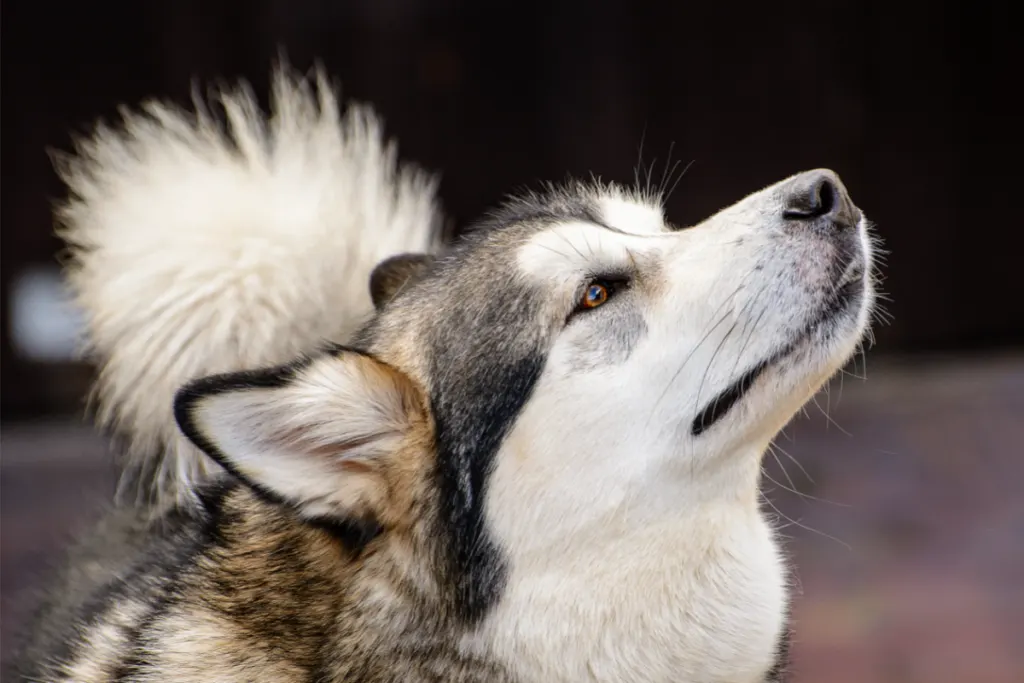
Click Here to Jump to a Section
Detecting Danger
One of the primary reasons that dogs sniff the air is to detect danger.
Dogs have a highly developed sense of smell, and they are able to detect scents that are associated with danger.
For example, they might detect the scent of a predator or a potential threat to their territory.
Dogs also use their sense of smell to detect danger in other ways.
For example, they can detect changes in the air that might signal a storm or other natural disaster.
They might also detect the scent of smoke, which could indicate a fire.
Finding Food
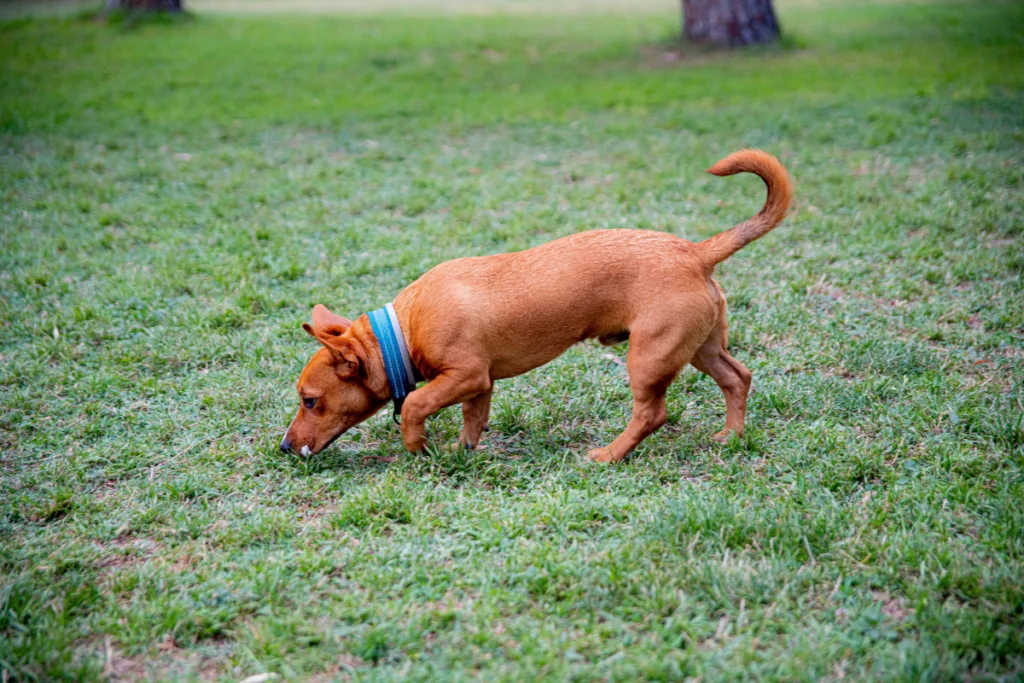
Another reason that dogs sniff the air is to find food.
Dogs are natural scavengers, and they are able to detect the scent of food from long distances.
This is why dogs often put their noses to the ground when they are searching for food.
They might be able to detect the scent of a piece of food that is hidden from view, or they might be able to track the scent of prey.
Dogs are also able to detect the scent of different types of food.
For example, they might be able to distinguish between the scent of meat and the scent of vegetables. This can be useful when they are hunting or scavenging for food.
Marking Territory
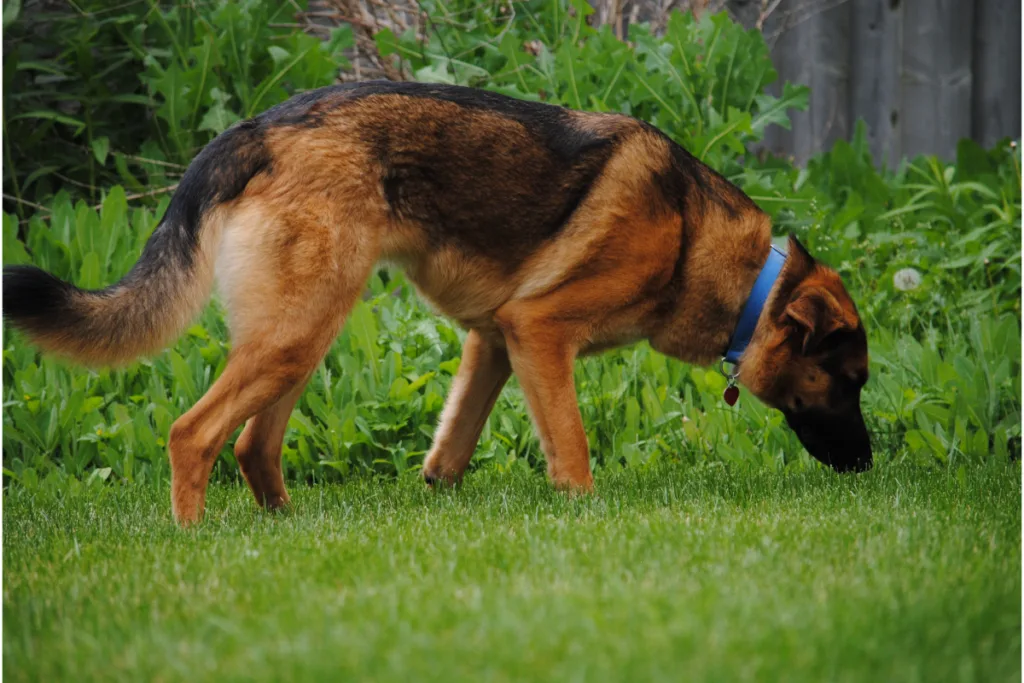
Dogs also use their sense of smell to mark their territory.
When a dog urinates or defecates, they are leaving a scent that marks their territory.
This is why dogs often sniff around before they go to the bathroom.
They might be looking for a spot that is already marked, or they might be trying to find a spot where their scent will be more prominent.
Dogs also use their sense of smell to detect the scent of other dogs in their territory.
This can be useful when they are trying to establish dominance or when they are trying to avoid a confrontation with another dog.
Communicating with Other Dogs
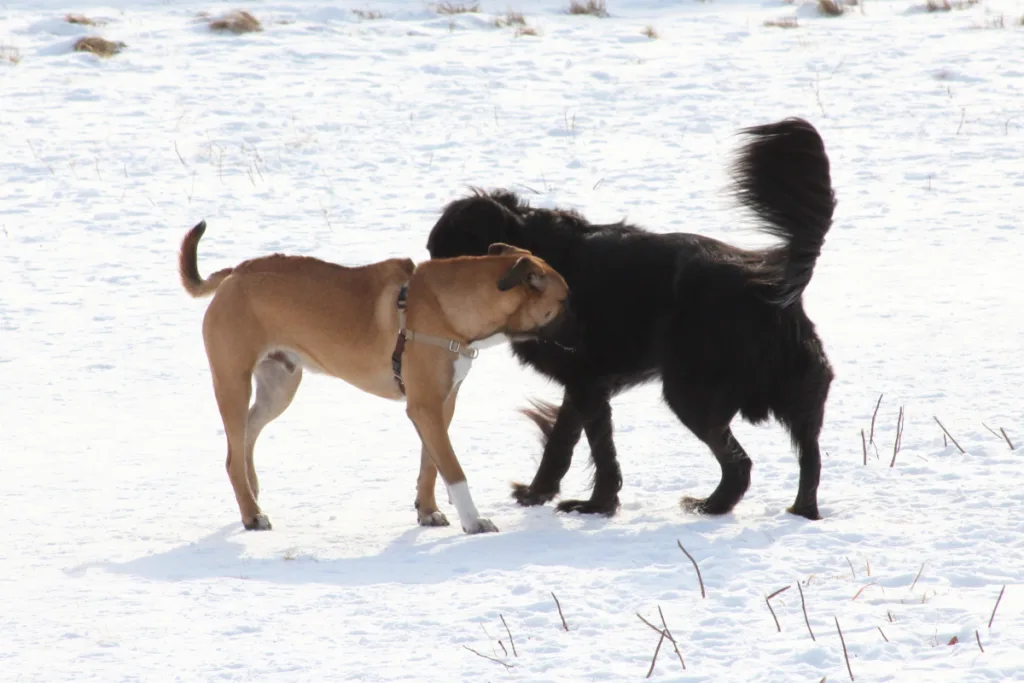
Dogs also use their sense of smell to communicate with other dogs.
For example, when a dog meets another dog, they will often sniff each other’s rear ends.
This might seem gross to humans, but it is a natural way for dogs to communicate.
The scent that is produced by the anal glands contains a lot of information about the dog, including their age, sex, and health.
Dogs also use their sense of smell to detect changes in the scent of other dogs.
For example, if a dog is sick or stressed, their scent might change.
Other dogs can detect this change and might react differently to the sick or stressed dog.
Finding Their Way
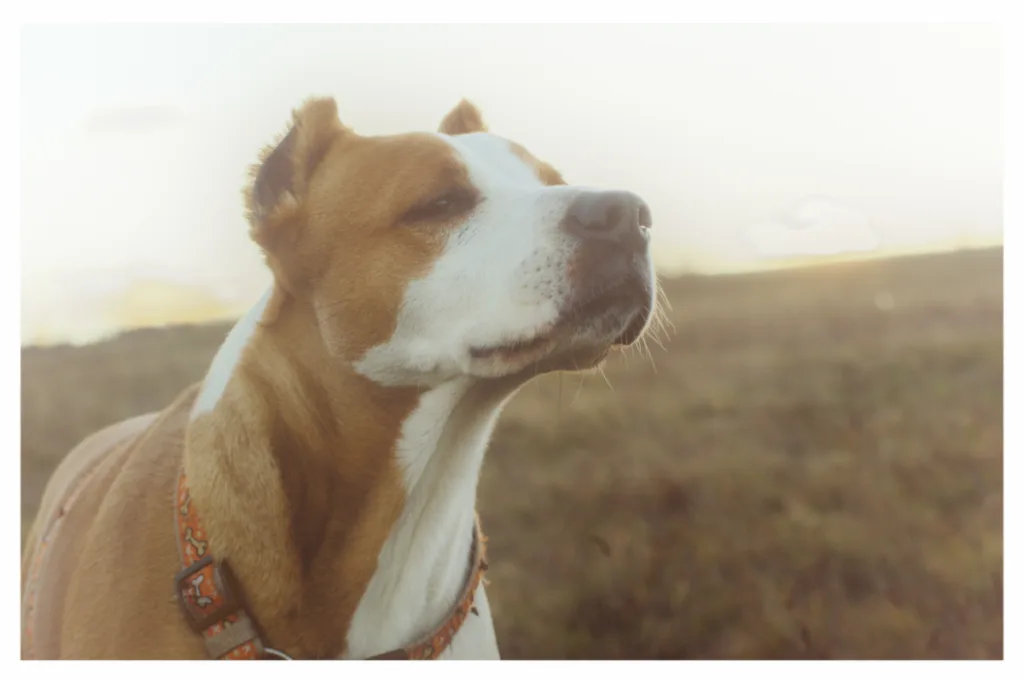
Finally, dogs use their sense of smell to find their way.
Dogs have a highly developed sense of direction, and they are able to navigate using their sense of smell.
For example, if a dog becomes lost, they might be able to track their way back home using their sense of smell.
They might be able to detect the scent of their own home or the scent of a familiar person.
Dogs Can Sniff Out Cancer

Last but not least – dogs can use their noses to detect cancer!
There have been several studies that suggest that dogs are able to detect cancer through their sense of smell.
It is believed that dogs are able to detect volatile organic compounds (VOCs) that are produced by cancer cells, which are different from the VOCs produced by healthy cells.
In one study published in the Journal of the American Osteopathic Association, trained dogs were able to detect prostate cancer in urine samples with 98% accuracy.
Another study published in the European Respiratory Journal found that trained dogs were able to detect lung cancer in breath samples with 71% accuracy.
While these studies suggest that dogs have the potential to detect cancer, it is important to note that they are not a reliable diagnostic tool.
More research is needed to determine the accuracy and reliability of using dogs as a screening method for cancer.
It is also worth noting that dogs may not be able to detect all types of cancer, and their ability to detect cancer may depend on the stage and type of cancer.
Additionally, dogs may not be able to differentiate between cancer and other medical conditions that produce similar VOCs.
Overall, while dogs may have the potential to detect cancer through their sense of smell, it is important to rely on more established diagnostic methods, such as blood tests and imaging, to confirm a cancer diagnosis.
Final Thoughts
In conclusion, dogs sniff the air for a variety of reasons.
They use their sense of smell to detect danger, find food, mark their territory, communicate with other dogs, and find their way.
Their highly developed sense of smell is a natural adaptation that allows them to survive in the wild and navigate the world around them.
Understanding why dogs sniff the air can help us to better understand their behavior and their natural instincts.
